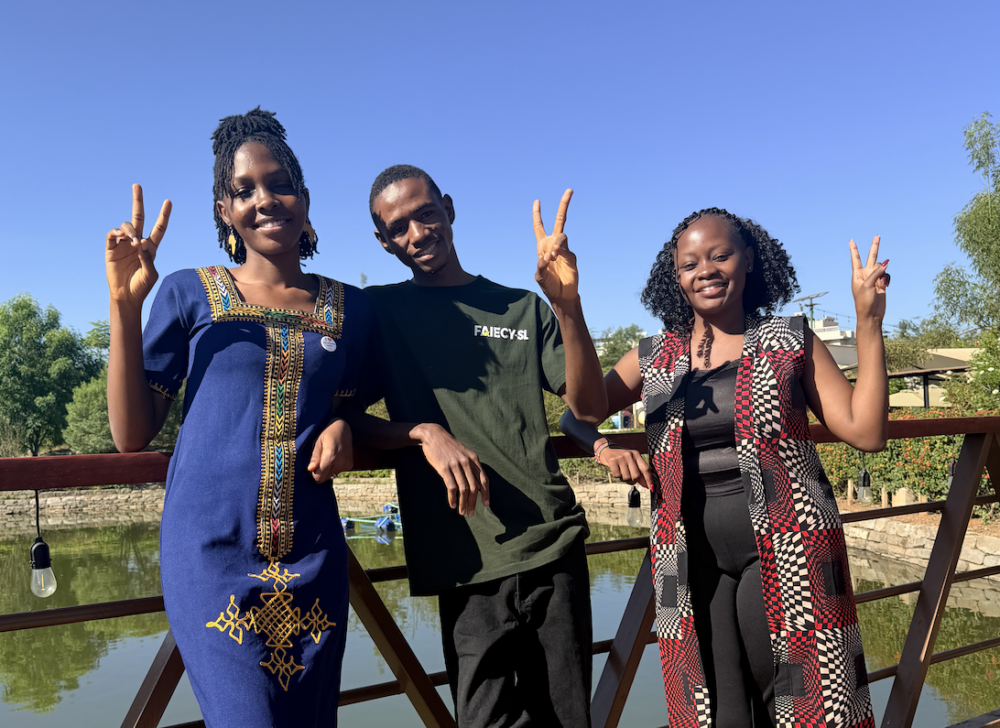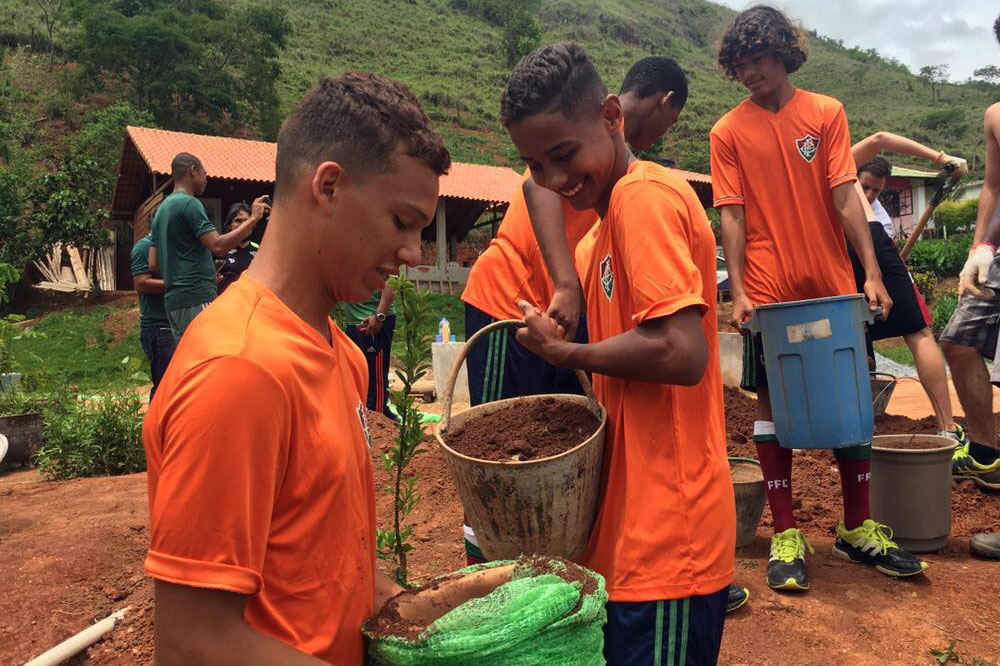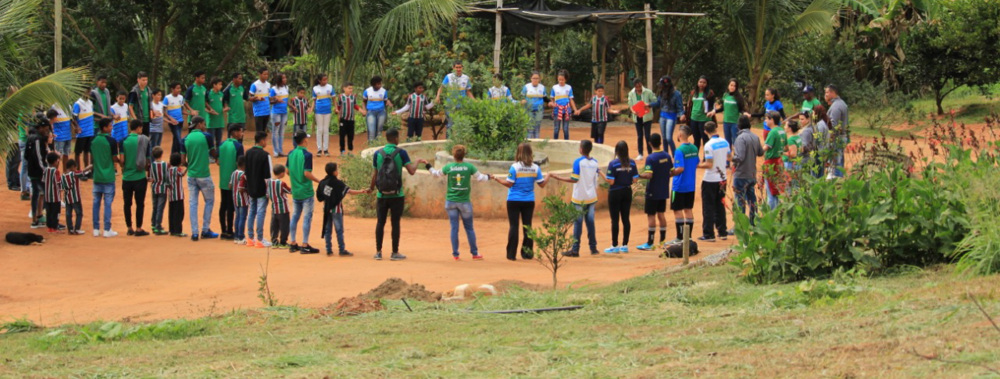
Youth power
Youth power
This guest blog post was written by Emily Prest, a member of the Georgetown University Graduate School of Arts and Sciences Class of 2023, in collaboration with Joan Lombardi, PhD, a Senior Fellow at the Georgetown Collaborative on Global Children’s Issues.
One of the most pressing issues facing our world today is climate change. Action has been slow, and the threats of climate change increase with every second. While some progress has been made, our world leaders have not capitalized on the growing urgency to take meaningful steps in mitigating climate change. Climate change has the potential to compromise access to clean air, potable drinking water, food supplies, and safe shelter. These effects are likely to be felt within the next few decades.
Between the years 2030 and 2050, approximately 250,000 additional deaths per year are projected to occur due to malnutrition, malaria, diarrhea, and heat stress associated with climate change. On top of this, by 2030, the health impacts associated with climate change will come with a price tag of $2 to $4 billion per year.
This is the world that our children will be inheriting. Through inaction, past generations have neglected the opportunities to act for the children of today and tomorrow. To fill this gap, children have been taking a stand. Youth climate activism has been on the rise internationally, with youth arming themselves in climate literacy and youth-led organizations calling on the world’s leaders to secure their right to a clean and safe environment, as well as the rights of future generations.
Children around the world have been sharpening their pencils and equipping themselves with the education to fight against climate change. In the Caribbean, the Girls Climate Action for Resilience & Empowerment (GirlsCARE) program is hosting a mentorship initiative for 25 girls and young women in the region, focusing on the intersection of climate and gender justice. This mentorship program emphasizes the importance of youth advocacy and feminism in the climate change landscape.
[image_caption caption=”Youth at Vila dos Sonhos, a sustainability education center created by GFC partner Onda Solidária, engage in a hands-on gardening activity in Minas Gerais, Brazil. © Onda Solidária” float=””]

[/image_caption]
Turning to efforts in Africa, a group of young women researchers in Zambia and Zimbabwe, in collaboration with Plan International and SOAS University, analyzed and assessed the impact of climate change on adolescent girls’ education in the two countries. In their research, they found that due to the economic impacts of climate change, adolescent girls in Zambia and Zimbabwe are more likely to drop out of school and are at greater risk of child marriage.
In May 2021, the US and South Korean governments launched the US-Korea Young Activists Exchange program as a bilateral initiative to bring together youth climate activists from the United States and South Korea. This program aims to educate youth on climate change mitigation and adaptation efforts on both the domestic and international fronts.
The youth and children of today are becoming environmental stewards, championing the fight against climate change, and educating themselves on the impacts our world is going to face. The youth of today are stepping up and getting a jump start into their roles as our leaders of tomorrow.
The voices of youth and children have become increasingly strong in the world of advocacy. Fed up with the current trajectory of climate decision-making, international youth-led organizations have been on the rise, with strong membership.
Youth have participated in climate strikes with youth-led organizations such as Fridays for Future, an organization focused on calling on policymakers to take greater action on the climate crisis, and Extinction Rebellion Youth, an organization that participates in nonviolent civil disobedience while advocating for a cleaner tomorrow. Youth have even educated other youth on getting involved in climate activism. Youth-led organizations, such as Zero Hour, help provide training and resources, assisting other ambitious youth activists and organizers around the world in making their voices heard.
Youth are also making climate awareness more accessible. By translating important climate-centric documents from English into a variety of different languages, the youth-led nonprofit Climate Cardinals has emphasized the importance of inclusivity in fighting climate change. Through the work of youth leadership, young people’s grievances with the climate crisis have been heard in an international setting, stressing the importance of taking necessary action now.
The youth of today have demonstrated their ability to meaningfully contribute to and take part in the fight against climate change – from participating in climate change education efforts to leading worldwide movements. The voices of children and youth around the world should not be dismissed. While the future of the climate crisis is seemingly dependent on measures taken within the next decade, youth activists have become some of the greatest leaders in the call for change.
Emily Prest is a member of the Georgetown University Graduate School of Arts and Sciences Class of 2023, pursuing her master’s degree in Environmental Metrology and Policy. She graduated in 2021 from Cornell University, where she majored in Environment and Sustainability with a concentration in policy and governance. In the spring of 2022, Prest served as a Student Fellow at the Georgetown University Collaborative on Global Children’s Issues, where she researched the environmental and social impacts of climate change on children. Her research interests lie in the realm of environmental justice, and she hopes to help secure a clean and safe environment for future generations.
Joan Lombardi, PhD, is a Senior Scholar at the Center for Child and Human Development and a Senior Fellow with the Collaborative on Global Children’s Issues at Georgetown University. Over the past 50 years, Joan has made significant contributions in the areas of child and family policy as an innovative leader and policy advisor to national and international organizations and foundations and as a public servant.
Global Fund for Children participates in the Innovating Protection for Children on the Move Across the Americas Collaborative Design Team at the Georgetown Collaborative on Global Children’s Issues.
Header photo: Young people spending time at Vila dos Sonhos, an education center focused on sustainability in Minas Gerais, Brazil. Vila dos Sonhos was created by GFC partner Onda Solidária. © Onda Solidária
